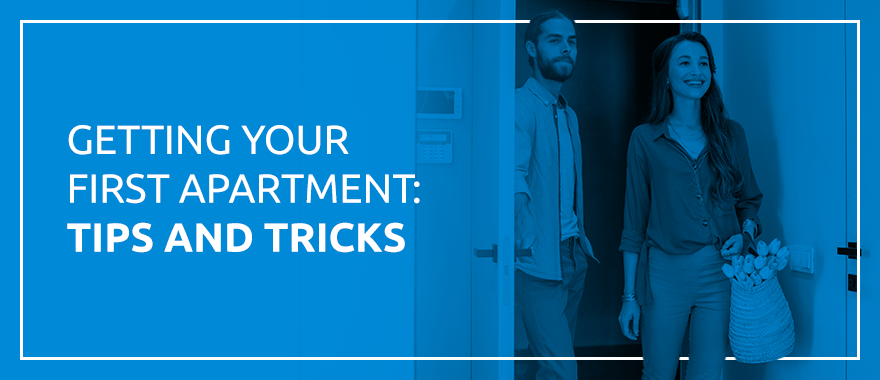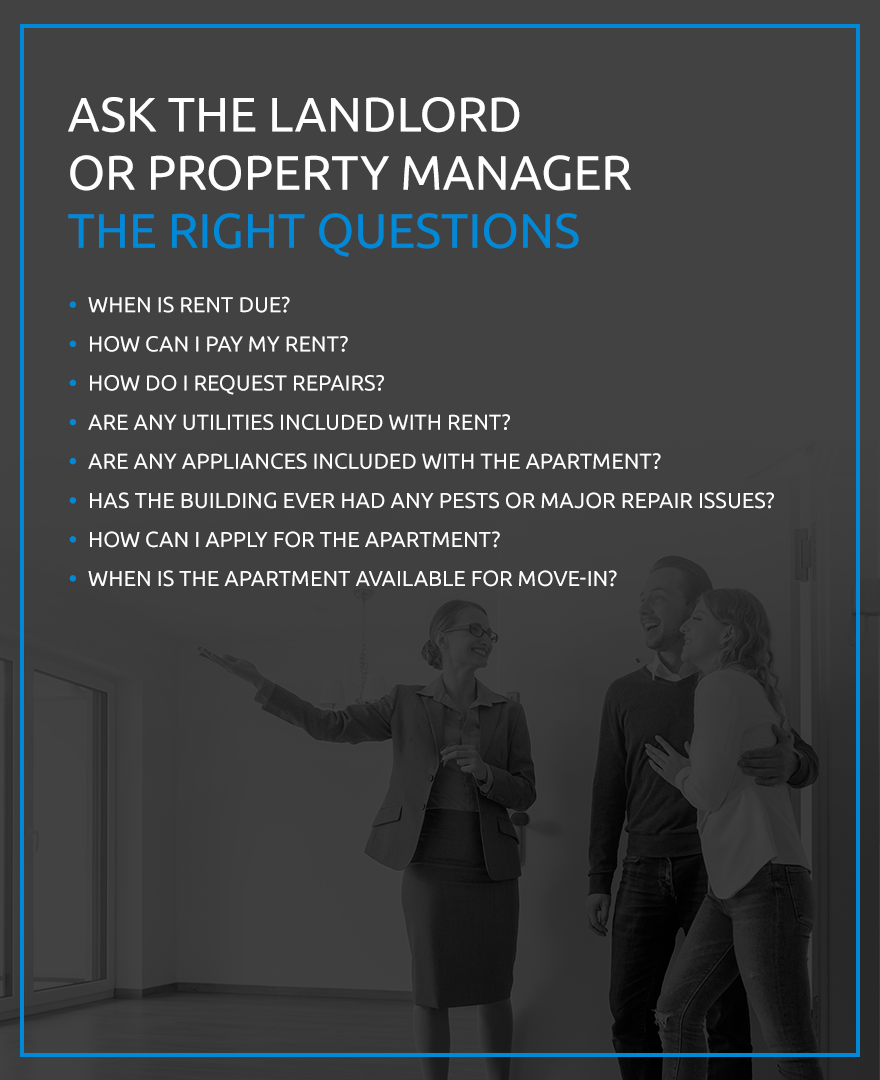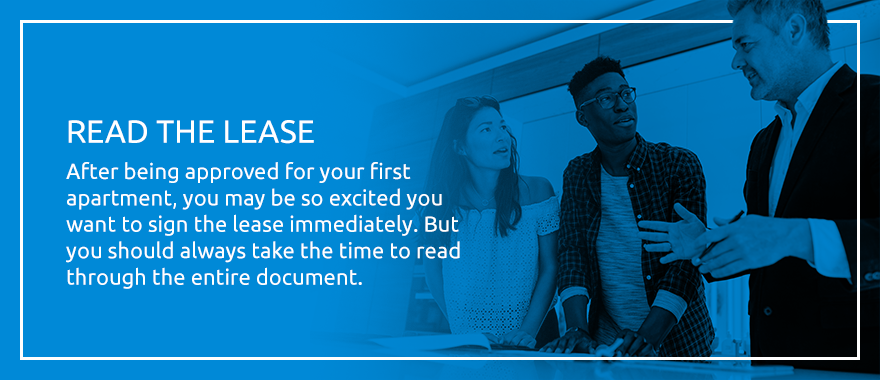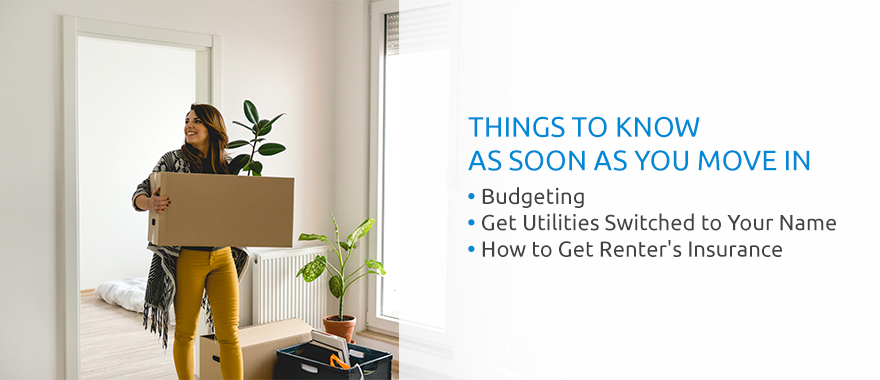
Moving into your first apartment can be as overwhelming as it is exciting. You get to choose your own space, decorate it to your taste, and determine the house rules. But you are also responsible for finding a suitable apartment, paying bills and making rent each month.
Renting in Missouri is easy since the state offers plenty of apartments ideal for becoming your first home, but before you sign a lease, you need to be prepared. From scoping out your options to budgeting once you move in, use these tips for your first apartment to make the transition smooth.
Things to Know Before Moving In
Before you move into an apartment, you need some important information to decide if it’s a good fit for you. Consider these three factors.
1. Location
Where is the apartment located? You want to be comfortable in the space around your home as well as inside of it. Ask yourself these questions about the apartment location:
- Is it in a safe neighborhood?
- How long will your commute to work be?
- If you own a car, is it located somewhere with accessible parking? If you don’t own a car, is public transportation accessible from the apartment?
- Do you like the feel of the neighborhood?
- If you like going out, is there nightlife near the apartment?
- If you prefer a quiet home, are there any potential noise sources near the apartment?
- What floor is the apartment on? Are you willing to walk up several flights of stairs, or do you prefer a unit closer to ground-level?
2. Space
Consider how much space you need before you fall in love with an apartment. If you are living alone, you may want a studio or a one-bedroom apartment. If you are living with roommates, how many rooms will you need? Buying things for your first apartment is exciting, but you do not want to fill room after room of empty space. On the other hand, you do not want to be too cramped with no space for your belongings, either.
3. Budget
You can figure out the exact details of what your monthly budget will look like once you move in, but you need to know how much rent you can afford before making the move. Conventional advice dictates that no more than 35% of your after-tax monthly income should go toward your rent.
Consider how much money you make, and determine what percentage of your income the rent would be. If it’s near or over 35%, it’s likely going to strain your budget. You have other monthly line items to pay for, such as utilities and food. Set yourself a reasonable budget range for rent and only check out apartments in that range to avoid falling in love with something you can’t afford.
Ask the Landlord or Property Manager the Right Questions

Asking your potential landlord the right questions is an essential part of making an informed decision. Your landlord will play a significant role in whether or not you are happy in your new apartment. Here are a few important questions to consider:
- When is rent due? The first of the month is typical for paying rent, but different landlords have different rules. Make sure you know exactly when you need to make that rent payment.
- How can I pay my rent? Some landlords/management companies have an online system for paying rent. Others have a box or office in the apartment building where you can drop a rent check. Mailing your rent check is another standard option.
- How do I request repairs? As a renter, you are not responsible for common household repairs. For example, if your toilet or sink stops working, your landlord is responsible for fixing it. Ask your landlord the best way to request these kinds of repairs. Do you make a phone call? Send an email or text? Is there a formal online system, typically found in larger companies that own multiple buildings? As a follow-up, you can ask how long it typically takes to get a response to your request.
- Are any utilities included with rent? Sometimes rent includes all utilities — gas, electricity, water and internet — but more often at least one service will be the responsibility of the tenant.
- Are any appliances included with the apartment? Most apartments come with a refrigerator, stove and oven. Some also include a microwave. When it comes to laundry, some apartments have it in-unit or laundry facilities could be in the basement of the apartment building. In some cases, the building may not have washers and dryers for tenant use. Make sure you know this before you sign a lease.
- Has the building ever had any pests or major repair issues? Many apartment buildings have a long history. Be sure to ask your landlord if that history includes any pests or water damage issues. If so, how did the building owner remediate the problem? You do not want to discover mold, mildew or pests after locking yourself into a lease.
- How can I apply for the apartment? If you are satisfied with the answers to your questions and you decide you are interested in the apartment, you will want to ask about the application process. You may be able to apply on paper at the unit, or you may be able to apply online through a formal system or via email later. Be sure to ask if there is an application fee, which many companies use to cover the cost of a background and credit check of potential renters.
- When is the apartment available for move-in? Of all the questions to ask the landlord at your first apartment, this is probably the answer you want most. Landlords may hold viewings while an apartment is still occupied. Others may wait until the unit is vacant. Ask for the first available date or inquire how long the landlord is willing to hold the unit to ensure it lines up with your schedule.
Read the Lease

After being approved for your first apartment, you may be so excited you want to sign the lease immediately. But you should always take the time to read through the entire document. The terms of the lease will affect your experience of living in the apartment. Parts of the lease to note include:
- Lease length: The length of your lease will determine how long you can live in the apartment before you need to re-sign. Twelve-month leases are typical, but the length can vary. Landlords may be looking for short-term renters or long-term renters. You should know the length so you can decide ahead of time whether to renew the lease or to search for another place to live.
- Security deposit: An apartment lease will detail any fees that come with signing the rental agreement. Some apartments may require a security deposit and first month’s rent before you can move into the space. Landlords typically refund security deposits after you move out of the apartment. Any damage done during your time in the apartment will come out of that deposit.
- Move-in fees: Other apartments require a one-time, nonrefundable move-in fee. Check the lease for these fees to ensure the apartment still fits into your budget. Ask if there are any fees associated with paying rent late.
- Renewal: Check the lease for the renewal policy. Are you able to renew the lease once the term is up, or is the apartment only available for a single term? This policy should outline what notice landlords are required to give you if they do not intend to renew the lease or if they want to raise the rent.
- Pet policy: Most apartments have pet policies. Some buildings do not allow any animals. Some apartment buildings allow cats but not dogs. Others allow both. If you plan to move in with a dog, check your lease for any weight or breed restrictions. Finally, always see if the lease includes a pet fee.
- Guest policy: Once you have your apartment all set up, you will probably want to have friends and family over to show it off. Check your lease to see if there are any rules governing how many guests can come to your apartment and how long they can stay. For example, some apartment leases may state that no guests are allowed to stay for more than 10 days.
- Noise policy: Apartments are shared living spaces, which means you will probably hear your neighbors going about their lives from time to time. Most leases will have guidelines around acceptable noise levels.
Meet the Neighbors
If at all possible, meet your potential neighbors before moving into your first apartment. You can ask them questions about the building, and you may get an answer from fellow tenants that you wouldn’t hear from the landlord trying to rent the unit. Introducing yourself and giving your neighbors a heads up about your moving day can give a good impression and make your life in the building easier.
Learn More Home Tips
Things to Know As Soon As You Move In

Once you move in, arranging your furniture and decorating are the fun part. But you still have a few other important duties to cross off your list of responsibilities. Keep in mind these first apartment tips.
Budgeting
What’s the best first apartment tip you can get? Learn how to budget. You already know the cost of rent and all of the fees associated with moving in, but now you need to determine what a regular month of living in the apartment looks like. Keep in mind your monthly income and what percentage of that figure will go to rent. Next, consider these other regular expenses:
- Utilities: Whatever utility bills you are responsible for will mean another monthly bill.
- Phone: The days of the landline are virtually gone. Instead, you need to factor your monthly cell phone bill into your budget.
- Food: All of your grocery shopping and eating out needs to be considered in the monthly budget. Cooking at home tends to be less expensive than going out, so consider that when creating your personalized budget.
- Savings: Since everyone has different financial goals and obligations, the percentage a person should save varies. You should set some monthly saving goals to build your financial future.
- Transportation: Whether you own a car or take public transportation, you need to know how much money you will spend getting from your apartment to work and other locations.
- Entertainment: Life isn’t all about bills. Save some room in your budget for blowing off steam. With the right budgeting, the money will be there if you want to go out for drinks or to the movies with friends.
- Renter’s insurance: Set aside space in your monthly budget to cover the cost of a renter’s insurance premium. If anything happens to your belongings, you will be relieved you thought ahead and protected your property.
Once you have your budget figured out, try to stick to it. Disciplined budgeting for your first apartment helps you stay on top of your bills and can help to prepare you for unexpected expenses.
Get Utilities Switched to Your Name
The utilities you have to pay for do not come ready to go with your apartment. As the renter, it’s your job to get in contact with the providers and get the unit’s utilities put in your name. Basic utilities like electricity, gas and water likely only have one available provider each for the building.
When it comes to the internet, you may be able to choose from a few different providers. If you want to avoid any downtime without utilities, try to schedule the accounts moving to your name to coincide with the day you move into the apartment.
How to Get Renter’s Insurance
Your landlord may be responsible for the upkeep of your apartment, but they are rarely responsible for the loss or damage of your belongings. If your neighbor’s pipes leak and ruin your clothing or bedding, your landlord is only responsible for paying for the leaking pipes. You will need to pay the cost of washing or replacing the wet items. Enter renter’s insurance.
Renter’s insurance for your first apartment is an affordable line item in the budget. Renter’s insurance covers damage to your personal property in the event of theft, fire, water leakage, vandalism and more.
In addition to covering your personal property, most renter’s insurance policies also have coverage for personal liability. If someone is hurt in your apartment, the renter’s insurance policy will help you pay for their medical bills and legal fees, giving you invaluable peace of mind.
It is worth noting that aside from protecting your belongings, bundling your new renter’s insurance policy with a current auto policy could have savings associated with it. Talk to your insurer for more information about the savings associated with bundling your renter’s policy and auto policy.
Moving to Missouri? Call David Pope Insurance for Renter’s or Homeowners Insurance
If you are looking for renter’s insurance in Missouri, call David Pope Insurance. You’ve worked hard to find your first apartment and for everything inside your home. Protect those belongings and the life you are building with renter’s insurance. Request a quote to see how easily renter’s insurance can fit into your budget.




